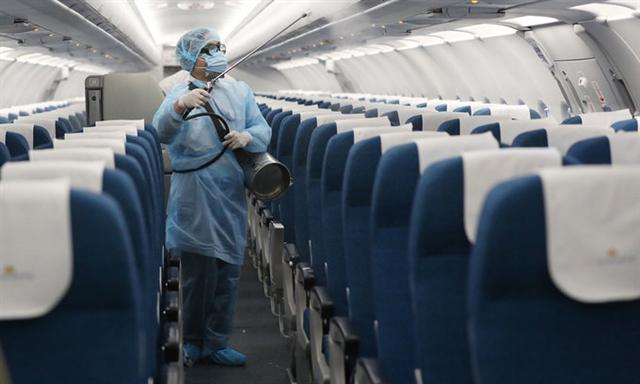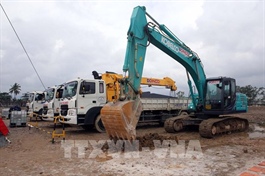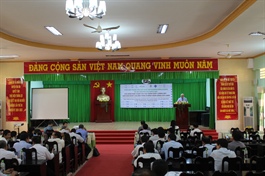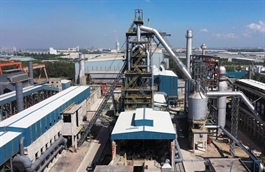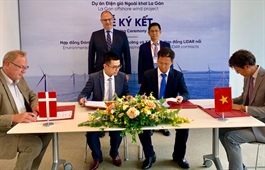Headwinds buffet Vietnamese carriers through 2020
Headwinds buffet Vietnamese carriers through 2020
The Vietnamese aviation industry has gone through one of its most challenging years ever as the Covid-19 pandemic restricted flights and caused airlines huge losses.
A medical staff disinfects a Vietnam Airlines aircraft in Hanoi in February 2020 to contain the spreading of the novel coronavirus. Photo by VnExpress/Ngoc Thanh.
|
The number of flights the country’s five commercial airlines operated fell 36 percent year-on-year in the first 11 months to 196,600, according to the Civil Aviation Authority of Vietnam (CAAV).
They carried 29.4 million passengers, down 41.7 percent, according to the General Statistics Office.
Vietnam Airlines was the worst hit. Duong Tri Thanh, its CEO, said that the pandemic has set back the aviation industry by three or four years, and has brought down his company’s cash holdings to near zero.
Vietnam Airlines Group, consisting of the carrier and its subsidiaries Pacific Airlines and Vietnam Air Services Company (VASCO), posted a loss of VND10.75 trillion ($464 million) for January-September.
The number of passengers it served in the period fell by 41 percent to 10.2 million.
It has cut sales and management expenses and reduced the salaries of pilots and cabin crew. It has increased the number of repatriation flights bringing Vietnamese nationals home from other countries.
But these efforts cannot save the company from suffering one of its worst years in nearly three decades as a commercial airline, with its losses this year forecast to rise to VND15.2 trillion.
Budget carrier Vietjet is in a similar situation, with losses of nearly VND925 billion in the first nine months and the number of flights falling by 43 percent to 58,300.
The airline was forced to cut managers’ salaries by half as revenues plunged, and it would take three years for the industry to recover to pre-pandemic levels, a Vietjet spokesperson said in November.
In contrast, 2019 saw new carrier Bamboo Airways enter the Vietnamese skies, Vietnam Airlines achieve all-time high profits and the number of air passengers continue to grow in double digits.
The tough times began in March when the government ordered the suspension of all international flights to curb the spread of the novel coronavirus and domestic travel demand slumped amid fears of the pandemic.
"The impact of Covid-19 has been unprecedented for the aviation industry," Dinh Viet Thang, head of the CAAV, told the media in June, pointing out there were times when only 1-2 percent of Vietnam’s 250 aircraft were operating.
The second and third quarters were the most challenging period for the industry as a three-week nationwide social distancing campaign in April caused airlines’ revenues to plummet and a second outbreak in July halted their attempts to boost domestic travel and achieve a recovery.
Aviation expert Nguyen Thien Tong said it would take at least until 2022 for the industry to recover to pre-pandemic levels because the fear of contagion remains globally.
Air travel demand would rise slowly even after Covid-19 is contained globally because many businesspeople have learned to conduct meetings online to keep their companies running during the pandemic and people’s incomes have shrunk, he told VnExpress.
One major factor in any possible recovery will be government support. The National Assembly in November approved a plan for the central bank to refinance Vietnam Airlinesand roll over loans. The airline had earlier asked for a relief package of VND12 trillion.
Lawmakers also cut environment tax on jet fuel by 30 percent from August this year until the end of next year.
Tong said: "More low-interest loans should be given to airlines based on how much tax they have contributed in recent years, not how much ownership the government has in them."
The tourism industry needs to offer more promotionsto foster domestic aviation since it is unclear when regular international flights would resume, he said.
The newly licensed Vietravel Airlines should wait until the market recovers in 2022 before it begins flying since its entry would only worsen things for existing airlines, he added.


